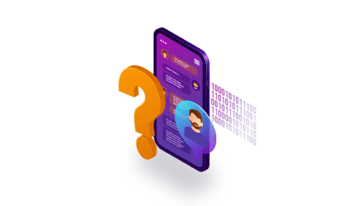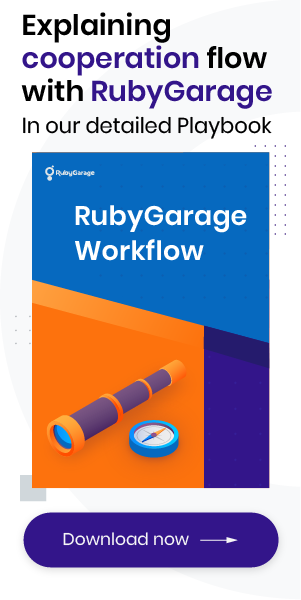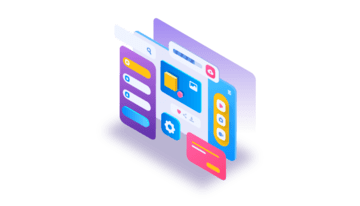-
Product Management
Software Testing
Technology Consulting
-
Multi-Vendor Marketplace
Online StoreCreate an online store with unique design and features at minimal cost using our MarketAge solutionCustom MarketplaceGet a unique, scalable, and cost-effective online marketplace with minimum time to marketTelemedicine SoftwareGet a cost-efficient, HIPAA-compliant telemedicine solution tailored to your facility's requirementsChat AppGet a customizable chat solution to connect users across multiple apps and platformsCustom Booking SystemImprove your business operations and expand to new markets with our appointment booking solutionVideo ConferencingAdjust our video conferencing solution for your business needsFor EnterpriseScale, automate, and improve business processes in your enterprise with our custom software solutionsFor StartupsTurn your startup ideas into viable, value-driven, and commercially successful software solutions -
-
- Case Studies
- Blog
Questions to Ask a Website Developer When Outsourcing Your Projects
Among all business areas globally, IT services ranks second in terms of potential skill gaps. According to a McKinsey survey, 26% of respondents reported a lack of talent in IT, mobile, and web design and management. The shortage of IT specialists in the local market forces companies to hire professionals from outsourcing vendors.
This practice has proven its efficacy. For example, 24% of businesses surveyed by Clutch in 2019 reported that outsourcing allowed them to manage more projects without affecting quality or clarity and while giving them a fresh state of mind. The problem here is how to minimize the risks related to web development outsourcing before they impact your business. Knowing the right questions to ask a website developer during an interview helps you make a viable choice.
When does remote hiring make sense?
The Deloitte Global Outsourcing Survey reveals that the most significant outsourcing driver is cost reduction:

Companies outsource their project development to achieve different business aims:
- Reducing development costs: No expenses for recruiting, onboarding, office space, equipment, taxes, etc. Additionally, there are countries with significantly lower rates for the same service.
- Covering the talent gap: If there is a shortage of developers with the required specialization in your location, you can hire developers from elsewhere.
- Cost-effective business scaling: You can implement more projects within the same time without spending on extending your in-house team.
- Speeding up the time to market: Hire a bigger team to deliver your product faster.
- Enhance service quality: Hire experienced professionals to optimize your existing solutions, address customer issues, and implement up-to-date upgrades.
- Focus on your core business: Delegate your web solution implementations to others while focusing on business development.
- Gain access to advanced technologies: Hire developers with advanced expertise in the latest technologies to add value to your business.
Types of remote employment
There are two main types of remote employment: outsourcing and outstaffing. Outsourcing means hiring a company to develop a solution based on your requirements. The hired vendor is responsible for the entire project workflow, managing the project from A to Z. All specialists, equipment, and resources are their responsibility. Outstaffing is hiring separate professionals to work on your project remotely under your supervision. The outstaffing agency provides employees with the required skills and experience to mediate between clients and candidates. Yet onboarding the hired specialists, managing the project, and providing deliverables are entirely the client’s responsibility. Here is a brief comparison of outsourcing vs outstaffing models:
| Criteria | Outsourcing | Outstaffing |
|---|---|---|
| Purpose | Find a developer with specific expertise | Develop a project from scratch or rebuild an existing solution |
| Communication | Daily communication not required | Required on a daily basis |
| Pricing models | Fixed price, time & materials | Salary-based hire |
| Management | Under the vendor’s control | Under the client’s control |
| Time to start | Faster development start | Takes more time to set all project specs and form the team |
| Cost | Higher for the same service | Lower for the same service |
| Advantages | Rapid start | Complete control over the project |
| No equipment required | Hiring through a partner | |
| Vendor is responsible for HR | Flexibility in hiring and firing | |
| All quality and delivery concerns are the vendor’s responsibility | Access to any hired individual | |
| Risks | Poor quality of the final product | All delivery concerns are the client’s responsibility |
| Communication issues due to diverse cultural backgrounds | Communication issues due to cultural differences |
If your company is not tech-savvy and doesn’t have internal staff and resources for supervising hired developers, outsourcing is preferable.
Offshore, nearshore, onshore: which is best?
There are three location-based types of outsourcing:
- Offshore outsourcing: Hiring a remote team from countries out of your time zone
- Nearshore outsourcing: Hiring a remote team from countries in the same time zone or a close one to yours
- >Onshore outsourcing: Hiring a remote team from your country
You can find out more about types of outsourcing in our ultimate outsourcing cheat sheet. Then, to define with which type fits you best, use this brief decision map:

After you have an idea of what type of remote team you need, you can find suitable candidates. Here are questions that may help you shortlist a reliable, qualified outsourcing vendor.
Questions to ask website developers about their expertise
A company’s technical background is the essential criterion to consider. You need to clarify in the initial interview if a company has:
- Experience developing solutions for your industry
- Experience developing the type of software you want to get
- Experience with the technologies you want to use in product development
- A portfolio of successfully developed and delivered projects
- References from past clients
Here are some interview questions to ask website developers.
1. What kind of experience do you have in this industry?
Having experience with a specific industry gives an understanding of its terms, mechanics, market situation, preferred technologies, legal requirements, etc. It’s a big plus if your development company has already delivered solutions for your industry. It means the team already understands industry-specific terms, market situations, legal requirements, and other aspects and can implement solutions while considering the industry specifics. It can also significantly reduce the project time and cost.
2. Have you developed this type of software before? Can you give examples of projects you’ve completed?
A company that has delivered similar products may already have some ready-to-use solutions for you. Be as specific as possible in describing the project you need in order to receive relevant information. For instance, say you need to develop a B2C marketplace for a hotel booking business. If your potential vendor has a suitable white label solution, it would be reasonable to consider using it instead of developing a product from scratch.
3. Have you worked with these technologies before? What problems did you solve with them?
If you decide to use specific programming languages and other technologies in your project, inquire about how proficient the potential team is with them. Ask about particular use cases relevant to your requirements to understand the team’s expertise. If you haven’t defined the technology stack, ask about what technologies the team would use to develop your solution and why.
4. Can you provide a portfolio?
Inquiring about a portfolio is one of the critical questions to ask a web development company during an interview. Having no portfolio usually means the team hasn’t completed their projects successfully. An outsourcing company that fulfills its commitments must have a portfolio of live projects with clear descriptions of the team’s role, challenges, and solutions delivered.
5. Can you share references?
Always ask for references from potential vendors. Even if you won’t use them, the fact that a company is comfortable sharing references speaks for its credibility and transparency. Validate the provided contact details to see what types of clients the company has. If the company has testimonials on its website and social media profiles, make sure there are not only names and generic, non-informative comments. There must be the client’s name, company, and position under every testimonial. Otherwise, you’re risking getting a fake impression of the company’s reputation.

Questions to clarify the workflow
An outsourcing company with well-thought-out and polished processes can easily answer these questions. Make sure you don’t waste your time and budget setting up internal team processes and educating your team on how to do business. The workflow should already be set up and ready to use. Here are a few questions to ask website developers to make sure they know how to run processes effectively.
1. What are the development stages for a typical web application?
Starting development right away often results in extra work and costs as you go along. Before any actual coding and design starts, a team should:
- Deeply analyze your business goals and technical requirements
- Research and ideate potential solutions that fit your needs
- Propose a well-defined solution based on research findings
- Document the entire project scope, and approve it with the client
- Address potential risks and all blind spots beforehand
- Set up the project plan and schedule deliverables according to the required timeframe
If a candidate doesn’t mention these things when talking about the development stages for a typical web application or cannot specify the stages of their typical workflow, most likely they cannot guarantee timely and high-quality deliverables. If you aim to find professionals and have no time for experiments, focus on vendors with a clear and well-established workflow. Check how we've set up the development flow for our clients' projects.
2. How do you define what features should be included in the MVP version?
If you need to develop a project from scratch, most likely the first release will be an MVP version that includes a basic set of features that are enough to check if the product is viable on the market and to start earning profit. You can also create an MVP when you have a tight deadline and have to release your product in time for some particular event.
Ask how your potential vendor picks the feature set for an MVP. A team must understand your target audience’s needs and values, match them with your business goals, and prioritize the entire project scope based on that.
3. How do you create the UI/UX design?
The UI/UX design is not only the visual representation of your website’s functionality. It is a tool that must solve your business problems and meet customer needs. Therefore, the UI/UX design process should include a research phase to evaluate these criteria and find a suitable concept.
Your potential outsourcing partner should understand the importance of research and provide a flow that ensures usability, functionality, technical performance, and reliability alongside an appealing website look.
4. How do you ensure source code quality and maintainability?
Some contractors say that they deliver high-quality code yet do not specify which tools and testing techniques they use to achieve this. The right strategy includes comprehensive QA activities and a coding culture with high standards. In addition, a clear and consistent code structure with every element commented is necessary for future project upgrades. This ensures that any new developer will be able to quickly jump into the project and continue working on it.
If you’re planning to upgrade an existing web application, the first thing your contractor must do is audit the current code and propose solutions to each issue. If you’re working on a new project from scratch, a consistent coding style, commenting, and documentation must be established from the very beginning. Next, ask about what coding standards the team uses to provide code quality, readability, reliability, and portability.
5. How do you ensure project quality and a bug-free user experience? What QA services do you provide?
An outsourcing team that cares about service quality pays much attention to quality assurance, including all testing activities in the project scope. Nothing is delivered to a client before being adequately tested. The web app testing routine must include:
- Functional testing
- UI testing
- Usability evaluation
- Performance testing
- Compatibility testing
- Security testing
- Compliance testing
The team should provide both automated and manual QA techniques to optimize the time and effort required for guaranteeing top-quality deliverables. To better understand different QA methods for web development projects, check out our Web Application Testing service page.
6. How do you communicate with the client?
The client’s involvement in the project must be enough to maintain the quality of deliverables, yet not more than is comfortable for the client. Ask about:
- Formats of getting in touch (video meetings, audio calls, text messages, etc.)
- Tools used for communication
- The regularity of reports and discussions while the project is in progress
- Staff in direct contact with the client
Experienced vendors have this process well defined in the form of a communication plan:

7. What specialists would you include in the team to work on my project?
The number and roles of team members involved in your project define the project’s cost, duration, and quality. You should be aware of what specialists are involved. A typical team for a web development project consists of:
- Requirements analyst
- UI/UX designer
- Frontend developer
- Backend developer
- QA specialist
- Project manager
Find out more about the web software development team structure in our dedicated blog post. Depending on the project’s scale and complexity, a few frontend and backend developers can be involved. Additionally, your project may require a product manager, a business analyst, and others.
Asking what specialists a development company would include on your team will help you understand who will be working on your project and what level of expertise the company is ready to provide.
8. How do you report deliverables throughout the development process?
Outsourcing implies that the hired team is entirely responsible for the deliverables and the quality of the final result. One way to make sure the team is moving in the right direction is to get regular and detailed progress reports and access to the staging server to see the deliverables as they appear.
The preferable scenario is when the team forms a release plan specifying the scope of work for each release version with start and end dates. Additionally, if the team uses SCRUM or another Agile framework to run projects, you will receive regular reports by the end of each sprint.
Having no clear reporting flow is a big red flag for any outsourcing provider.

Technical questions
When communicating with the development team, it’s essential to ensure their technical capabilities to generate and implement an efficient solution for your needs. Here are questions to ask a web developer to see how they would manage critical technical challenges.
1. How will you choose the tech stack for my project?
If you have no specific requirements for your desired tech stack, you must understand how the team chooses a technology stack to meet specific project requirements. If you have a chosen stack, ensure the potential vendor is well-versed in the technologies.
Often, remote teams are specialized in a particular set of technologies. In-depth expertise in a specific niche is more a benefit than a disadvantage. It’s impossible to be good at everything. Having no tech specialization can be mistakenly taken as flexibility. Yet it often shows that a company hasn’t chosen its direction, aiming to earn profits instead of delivering uncompromised quality to their clients. A perfect scenario is when the contractor’s specialization covers the tech challenges of your specific project. This is what you should strive for.
2. How do you develop mobile-friendly websites?
Websites and web applications should look and perform smoothly on all supported device types, web browsers, and screen sizes. Make sure the team can produce a responsive website layout and provide thorough compatibility testing services to check that each detail renders and functions correctly regardless of the device, platform, screen settings, etc.
3. How do you ensure the website’s stable performance with high data loads?
Performance is a critical metric for any web application. Good questions to ask website developers are about ensuring stable performance, fast loading speed, quick server response times, and other non-functional project requirements. In addition, your team must be able to choose a suitable hosting plan, optimize code, avoid excessive plugins, create lightweight graphics, use browser caching, and implement many other optimization techniques. A significant advantage of professionals is the ability to explain complex technical concepts in simple terms. You can be sure you’re talking to a worthy candidate if you understand everything they’re saying.
4. Do you provide automatic data backups?
Regular backups are essential during project development and after the website goes live. Make sure your developers set up automatic backups so you won’t need to do backups manually. With backups, you can quickly revert to the latest working version if something goes wrong.
5. How do you ensure project scalability?
A scalable web app performs equally well with any number of users or any traffic volume. The techniques you choose will depend on your project requirements. They may include selecting a specific tech stack, designing clean code, automating processes, caching, and developing APIs.

Security-related questions to ask a web developer
You should ensure all project information and artifacts are properly secured from third parties and that the vendor complies with up-to-date data security requirements. Ownership of code and designs also should be discussed beforehand. Below are critical questions to ask an outsourcing website developer during a shortlisting interview.
1. Does your company comply with security requirements?
If security certificates is one of your legal requirements, ask if the contractor is certified during the interview. One of the most popular standards is ISO/IEC 27001, a global information security management standard. It ensures that data security is consistently monitored and managed at every stage of your project.
2. Do you work entirely in-house or outsource your projects?
Many vendors outsource their contracts. This involves third parties who are not legally controlled by a contract. In addition, it implies potential risks to your project’s security, quality, and on-time delivery. If you prefer to know who’s involved in your project, choose vendors that perform all jobs in-house.
3. How does the team ensure product security?
A complex approach to ensure web app security involves authorization and authentication mechanisms, permissions control, data input validation, session management, data encryption, error handling, and many other techniques. See how we provide security for our Ruby on Rails web applications to better understand the critical points of this process.
Make sure your potential vendors consider product security one of their key priorities and have experience solving specific security issues.
4. Will I own the code after my website is launched?
It’s essential to have a domain name registered with your company, be able to access your website’s hosting account, receive all source code files, and so on. Also, make sure your vendor doesn’t claim any ownership of your product and related artifacts. Finally, discuss the ways your project can be further used by an outsourcing partner (shared in the portfolio, mentioned in case studies, mentioned on social media, etc.).

Financial questions to ask a web development company
There are two main pricing models for web development outsourcing:
- Fixed price: The client and vendor agree on a fixed project budget based on the required scope of work. In this model, the parties can agree on periodic deliverables for milestones. The service provider may set up payment terms with the client at regular intervals or when milestones are achieved. Fixed price contracts are suitable for projects with a clear scope, established project management methodologies, and stable requirements.
- Time and materials: This payment model implies paying for actual development time. The client pays for actual hours spent on development and the amount of work delivered. The vendor and the client can agree upon hourly, daily, weekly, or monthly rates for the provided services. The time and materials model is suitable for long-term projects when both parties are flexible to make changes or add features on the go.
Here are the main financial questions to ask when getting a website built.
1. How do you price your services?
Listen to the options offered by a vendor: payment model, payment methods, amount paid up front, and all other terms of how services should be paid. Keep in mind that a vendor’s price is based on experience, expertise, and project type. Higher rates don’t always mean a higher overall project cost because experienced developers can manage the same tasks faster than less experienced developers. Analyze pricing considering a company’s qualifications and reputation.
2. What is included in the project cost, and what do you charge additionally?
Aiming to make an attractive offer, some vendors estimate only the scope of development, excluding quality assurance, hosting, technical support, and other services. Determine what is included in the estimated project cost. Ask your vendor to itemize the deliverables included in the initial price and those charged additionally.
3. How do you ensure you will not exceed the budget? What if you will?
Exceeding the budget is a key issue for clients when outsourcing projects. The best approach to address this is to set clear terms in the contract. Exceeding the budget usually happens in two cases:
- A client changes project requirements on the go, which requires additional work from developers
- The development team fails to deliver the agreed scope of work on time within the set budget
A qualified team always negotiates with the client to get all the information required for an accurate estimate and to form the project scope and cost. Further, they confirm the project cost with the client and are responsible for delivering the agreed scope at the agreed price. If a client requests additional services or feature extensions beyond the initial scope, a service provider can include that in their workflow at an additional cost. They can also propose to include these requests in the next release that will be estimated and documented separately.
If you plan to collaborate according to the time and materials model, discuss what reasons for budget overruns are acceptable and what is not acceptable from your side.
Questions to ask a website development company before signing a contract
Most outsourcing companies provide clients with a ready-made contract for signing. While you’re shortlisting candidates, make sure they are ready to formalize all important terms for your future collaboration. Here’s what we recommend asking about:
1. What are the terms for acceptance of services at your company?
Discuss the period during which the client must accept the deliverables. For example, if the acceptance period is five days, the delivered results cannot be disputed or rejected later than five days after delivery. Even with no confirmation from the client, the service is considered “accepted” and must be paid after the five-day period expires.
2. What are the terms for providing extra work beyond the initial project scope?
It’s normal for a client to make some changes to the initial scope of work, such as adding a new feature or changing the web app’s logic. Ask your potential vendor how they accept change requests and how they should be paid. It would be helpful to list the terms for providing additional work in the contract to protect both parties from misunderstandings.
3. What are the payment terms?
As a rule, a service provider sets a fixed period for payments. For instance, you can agree that a client must pay the service fee within seven calendar days from the date of receiving an invoice. Also, clarify accepted payment methods and additional costs for things such as business trips and software licenses.
4. Do you impose any penalties on your clients?
Service providers may impose penalties on clients for breaching contract terms. Often these penalties are related to late payments, failure to provide necessary documents and information, and other bottlenecks caused by a client. Be sure that a service provider’s policy regarding penalties is acceptable to avoid any misunderstanding after the contract is signed.
5. Whose laws will govern the contract?
Often, the client and the outsourcing company are located in different countries. This means different laws and different legal systems. You can agree on which legal system applies to your project in the contract. If you cannot choose one of two jurisdictions, an alternative is choosing a legal system foreign to both parties.
Questions to ask yourself
The clearer you are with the project requirements, the easier it will be to find a suitable contractor and transfer your vision to the development team. That’s why you should take the time to answer these questions:
- What are my business goals for this project?
- What is my product’s target audience?
- What are the most critical customer problems the product will solve?
- Who are my competitors, and what is the product’s unique competitive advantage?
- How will I attract customers?
- What revenue streams am I planning to use?
- What is my budget?
Our guide to evaluating our client’s business ideas shows what information a development team needs to clarify your project requirements and implement your project successfully.
Final thoughts
Most sales professionals from outsourcing agencies are talented negotiators with effective communication flows polished through the years. Your interview aims to sort the wheat from the chaff and choose a contractor with the expertise and team resources needed to implement your project successfully. With the above questions to ask web developers, you will be able to assess candidates on all critical points and decide whom to hire.
FAQ
-
Besides in-house team, you can hire individual freelancers for remote cooperation, contract with an outstaffing agency to assemble a suitable remote team, or apply for an outsourcing web development company. The choice depends on your budget, management resources, and desired level of involvement into the project.
-
Outsourcing makes sense when your in-house team lacks talent and experience to complete the project, or you have a limited budget and would like to find a cheaper service without affecting the quality. It is also a suitable approach for teams that do not have resources to manage the project development in-house.
-
The most popular destinations to outsource web development projects are Eastern Europe ($25-$70 per hour), Western Europe ($50 - $90 per hour), Asia ($15-$40 per hour), and South America ($30 - #50 per hour).










